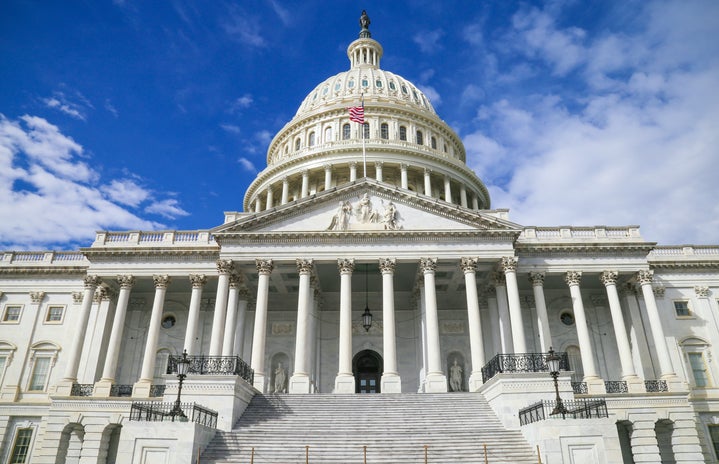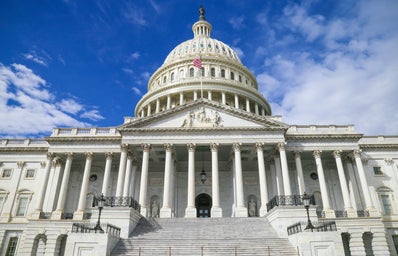Do we as Americans exercise power over the policies that directly impact us? Is our system even set up for us to affect and change policy? It was by reading Benjamin Constant in a political science class that I was able to think about these questions in more depth.
Constant argues against the idealized belief that U.S. citizens can directly impact their government; rather, he sees Americans operating within a system of “modern liberty” which is oriented around freedom within the private sphere. He asserts that “ancient liberty” consists of “active and constant participation in collective power and was aimed with the sharing of social power” and would argue that the U.S. does not fit this model. The U.S. government was not, in fact, created for individuals to practice, make decisions, and deliberate over legislation, and we may be witnessing the consequences of this formation in our current political climate. American individualism comes at a cost, which today may be reflected in the stripping of civil rights legislation and some of the more recent policies in regards to transgender and abortion rights.
It is important to note that current political ideas and ethical norms are always conditioned by broader historical dynamics that construct their realization. Modern liberty arises out of the social structures we are embedded in. At the epoch of the formation of the U.S. government was the Industrial Revolution, which saw a rapid growth of commerce and free trade as the organizational principle of social and political order which allowed for the rise of mass society and mass-produced social order. Therefore, when the U.S. saw new notions of individual freedom emerging as a result of industrialization, there also arose a desire for individuals to be free from unwarranted interference by the state or society. Individuals became more disposed to pursue their own private pleasure and, therefore, more willing to delegate political power to representative politicians who would conduct the people’s affairs, perhaps because citizens in modern commercial society are more diverted to pursuing their own private pleasure than with participation in public politics and created a notion of freedom based on economic autonomy.
But Constant warns that with new forms of liberty comes new forms of tyranny, and that “the danger of modern liberty is that absorbed in the enjoyments of our private independence, and in the pursuit for our particular interests, we surrender our rights to share in political power too easily.”
Constant’s prophecy may not be simple fantasy, though.
The United States may be in a political moment where tyranny is arising out of modern liberty. The U.S. has seen consistently low voter turnout since the 1960s, rendering elections, both local and federal, to remain largely unrepresentative of the people’s opinion. For many elections in the recent past, voter participation in America lags behind compared to its own past and other Western democracies. Most notably, the 2014 midterm election saw only 38% of eligible voters cast a vote, the lowest turnout since World War II. Low voter participation directly causes a lack of representation as elected officials and policies are not consented to by a majority of the American people. While modern liberty understands political representation as a kind of proxy where citizens delegate power to individuals to carry out the business of government, the problem arises when the people delegate too much power and withdraw from public life, leading elected delegates to become unaccountable and maybe even unrepresentative of the polity.
It is in our pursuit of private desires that modern citizens have been quick to surrender their right to actively participate within the polity in the name of individual liberty.
This has provided the opportunity for representatives to exercise arbitrary power as the people are becoming wholly subsumed and solipsistic in their own private lives and have surrendered freedom over to professional politicians. Representatives are surreptitiously gaining the power to more effectively exercise arbitrary and tyrannical power — the people’s mass complacency has led to the stripping of many civil rights such as trans rights and abortion protections, only to name a few.
In 2017, the Office of National AIDS policy was stripped. Transgender women, especially Black trans women and gay Black men, are the highest infected people with HIV in this country. Additionally, $568,000,000 was removed from the Ryan White fund, which is paid for people to have HIV care in this country. Seven words were removed from the CDC funding — including “vulnerable transgender” and “scientific-based” — which rendered companies that supported trans rights and trans people unable to write grants for that specific demographic. Furthermore, the 2021 Texas Heartbeat Bill effectively ends Roe v. Wade in the state, as it bans abortions as soon as cardiac activity is detectable — usually six weeks into a pregnancy — and usually before a lot of people know they’re pregnant. These are only a few of many examples of how U.S. representatives are currently curtailing civil rights legislation right under our noses. We must take heed to the fact that our delegates are becoming increasingly unaccountable to us and may eventually exercise an all-encompassing form of arbitrary power over us.
This complacency is dangerous and gives rise to the chances of complete and total tyranny where the people have neither their individual nor political freedom. Constant argues for a balance between ancient and modern liberty. Civic virtue and collective political liberty work in tandem with individual freedoms. For it was only through the shared exercise of power and the sharing of social power during liberation movements, such as the Stonewall Riots, that freedom and liberty were actualized.
It may be through the balance of ancient liberty (in regards to organizing and recognizing power in numbers), and modern liberty (in regards to practicing one’s individual freedom), that governments function at their highest capacity. Neither political freedom nor individual freedom must be surrendered entirely, and while it may seem like a hefty task, it is up to each generation to safeguard liberty…
for the other side of this coin is simply tyranny.
Can’t get enough of HC UMass Amherst? Be sure to follow us on Instagram, listen to us on Spotify, like us on Facebook, and read our latest Tweets!




